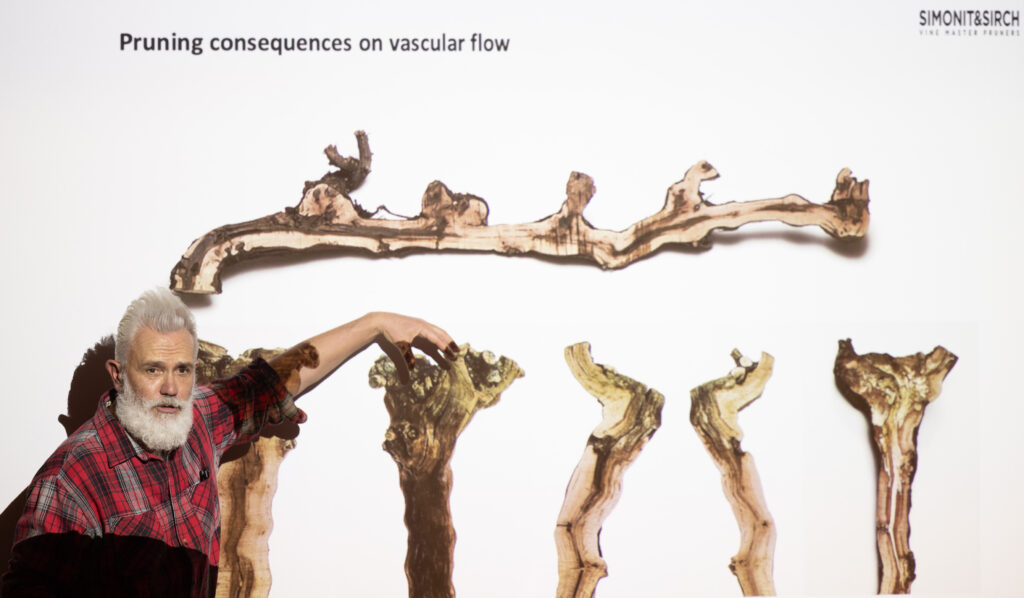5 Things We Learned in December 2023
The Areni team report on things that caught their attention in December, from restaurant strategies to billionaire trouble.
1.Restaurants are wise to you and your penny-pinching ways
As everyone connected with hospitality knows all too well, restaurants have had a tough time since the pandemic. Not only have labour and food costs risen, but restaurateurs are now dealing with diners who will do anything to save money — including, in the US, ordering one dish and splitting it between two or more people.
“In 2022, 21% of diners said they split an entree to lower the cost of a meal within the previous six months, and 58% said they would keep doing so, according to market research from Datassential,” reported the Wall Street Journal.
According to the article, restaurateurs have had enough and are now creating dishes that are difficult, if not impossible, to share.
“Restaurants don’t want to forbid splitting, says Abraham Merchant, chief executive of a New York-based management company with 17 affiliated restaurants,” the article continued. “Instead, his restaurants are trying subtle strategies like creating single-bite items, like a duck confit spring roll meant for one, without getting rid of splittable options, like roasted carrot hummus.”
Others are creating small plates that are meant to be shared — but diners will have to order several or more to get a satisfying meal out of it. Conversely, some restaurants are creating much bigger dishes that are created to be shared — but which cost at least twice the price of the original.
It’s hard not to be sympathetic to the plight of restaurant owners. In the UK, for example, restaurant closures hit a ten-year high in 2023. If the wave of portion creativity works in the US market, restaurants elsewhere should take notice.
And, of course, the staff should recommend that diners split a bottle of wine, because…
2.Wine producers need to brace themselves
Dry January has come round again, making wine producers and retailers wince in pain. There may be worse news to come — according to a recent report by Jancis Robinson MW, even once-reliable billionaires are cutting down their drinking.
“According to Gary Boom, CEO of global fine-wine merchants Bordeaux Index, ‘People are definitely becoming more health conscious. We are finding even some of our favourite billionaires are drinking less’,” she wrote in her end-of-year roundup.
Sales of trophy wines are down, Champagne is down and, as we reported last month, Burgundy is down.
Think that’s bad? No, the picture is even darker: the French are abandoning their once near-universal habit of pouring wine with their main meals.
“The number of regular wine drinkers in France is dropping fast, with barely one in ten still pouring a glass every day,” said a December article from Agence France-Presse, referring to a new report. “The report, covering wine consumption trends between 2015 and 2022, said only 11% of respondents reported drinking wine ‘every day, or almost every day’.”

That’s a fall of 5% since 2015. Even the fact that President Macron proudly drinks wine with his meals — “a meal without wine is a bit sad,” as he famously said — hasn’t stopped the decline.
There may be a glimmer of good news on the horizon. Some of the decline in wine consumption worldwide may have been the result of inflation, which seems to be stabilising or reversing in many of the major economies; retail spending in the US was unexpectedly high over the Christmas period, suggesting the economy is in for a soft landing.
If Dry January ends with people feeling a bit more economically secure, wine sales will rise again. But all the indicators suggest that the non-stop expansion of the wine economy over the last 30 years may finally be over. At least until a new generation comes along to rebel against the abstemiousness of their parents.
3. The word of the year is “authentic”
Sarah Philips, our keen-eyed Head of Membership, spotted Merriam-Webster’s choice for Word of the Year for 2023: authentic — “the term for something we’re thinking about, writing about, aspiring to, and judging more than ever,” said the judges.
“A high-volume lookup most years, authentic saw a substantial increase in 2023, driven by stories and conversations about AI, celebrity culture, identity, and social media.”
We’re proud to say that Areni got there first, thanks to our in-depth podcasts and essays on authenticity and wine, and how ‘authenticity’ differs in meaning from ‘typicity’.
“Both ‘authenticity’ and ‘typicity’ have, from the beginning, been linked to the search for quality,” said CEO Pauline Vicard in an Areni podcast on the topic.
“There is not one definition. The first one [authenticity] is ‘not fake’. Just something which is real and not fake. Then you go to the philosophers and they would tell you that ‘authenticity’ derives from autonomy and being empowered against the established power. It’s interesting to see that notion emerging in France in the 1920s with the socialist movement… Going back to the chronology, authenticity was 1935 and then typicity came in the 1980s in order to define quality and being able to compete at the international level.
Then typicity slowly came to signify conformity in the 2000s. That’s when authenticity came back again in our vocabulary, this time meaning having the capacity to listen to your vineyard and not just treat the vineyard as something that would produce great wine. But as something that you are in a real relationship with.”
Pauline also wrote an essay for JancisRobinson.com on this topic, which is well worth reading, not least because it fills in some important history about the search for quality in the 20th Century.
Words, it turns out, matter as much in wine as they do in other disciplines. Speaking of which…
4. Georgians have great insults
Pauline went to Georgia in December, where she was amazed and delighted by the extraordinary wine culture. She spent time exploring qvevri winemaking, tasting wines, and immersing herself in the world of Georgian food and wine.

While the Areni staff loved hearing about her adventures, we were particularly taken with her story about the word “bogano”. Apparently it’s an insult meaning “one without a vineyard”.
“When you don’t own a vineyard, well, you are not really complete as a human being,” she was told.
We now have a New Year’s resolution: get Pauline to buy us an Areni vineyard.
5. Pruning techniques can unlock terroir
Pauline also spent time in Austria in December, learning how to prune with Marco Simonit. It brought new elements to her understanding of how viticulture and terroir interact with one another.
“What I took from Marco is that humans need the vines, but the vines don’t need the humans,” she said. “In its natural state, vines don’t go vertically — it’s a creeper. In its natural state, it needs a lot of space.”
If a vine is to make quality wine, it needs to be pruned, but “pruning is the most invasive and impactful viticultural practice,” she continued.

She learned that there is no one farming system that’s perfect for viticulture, but that “one of the biggest risks when it comes to pruning is to blindly follow international models without caring about local specificities.” Following what people in famous regions do may be a grave mistake in a different region.
And yet Simonit is not against mechanical tools, as long as the farmer has first connected with the vines and spent time with them, “using manual scissors to help. Then, when you develop an understanding, you can use mechanical tools. If and when you understand the consequences of your pruning choices, you can use the machines in a good way.”
The implications of this are very clear: Areni needs to put this into practice. Pauline really does need to buy that vineyard.
To keep in touch with our research, analysis and events, subscribe to our newsletter.

